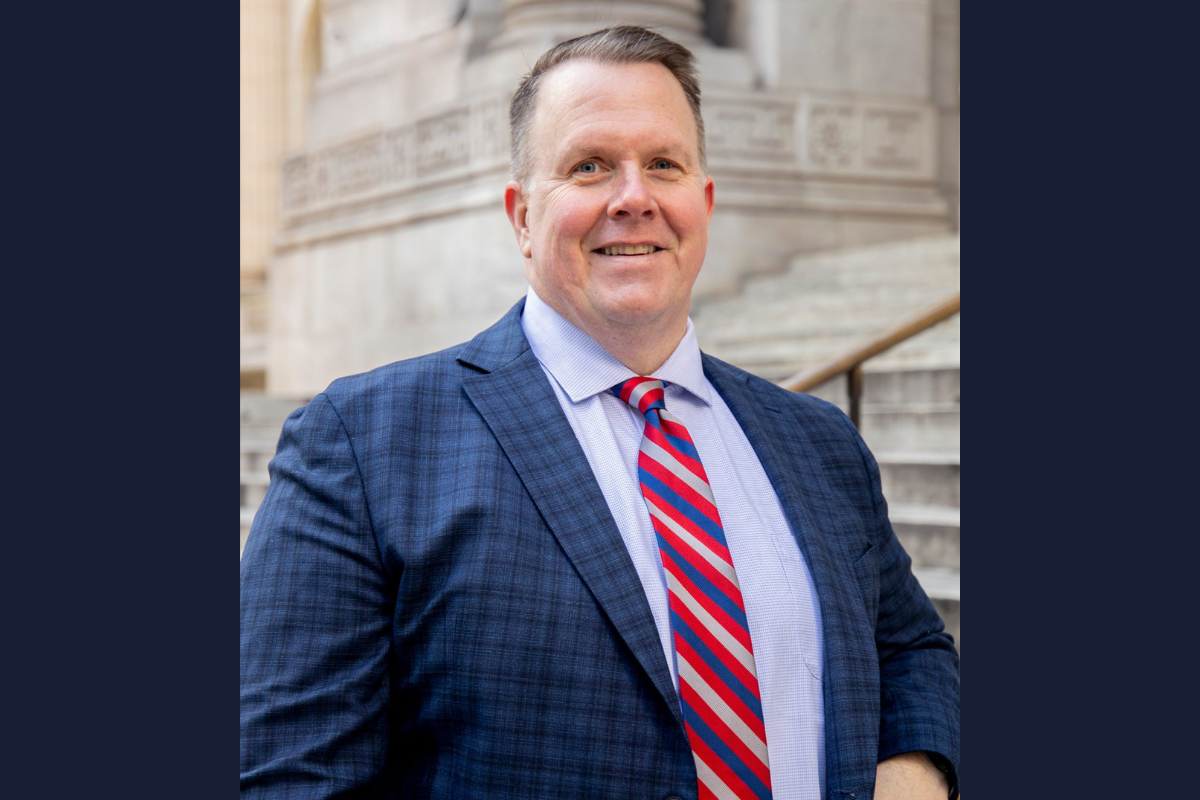Michael Herley never aspired to a career in communications. He completed a Master of Business Administration in finance at St. John’s University in New York City with ambitions of becoming a Wall Street analyst. But a visit to the School by Business legend Warren Buffett changed his career path.

“The one thing that really stood out to me, and he emphasized to us, was the importance of character and associating with people of the highest integrity in business,” Herley recalls of Buffett’s two-hour chat with a small group of students.
He told the students, “You want a good opportunity, focus on the character of the individuals who are running the company.”
Herley followed that advice, landing a position in 1996 at Kekst and Company – now Kekst CNC – the famed financial public relations firm, which advises clients involved in the world’s biggest mergers and acquisitions, private equity and restructuring transactions.

I’m very selective in taking on clients. I don’t go out and actively sell our services or pitch to new clients.
He confesses that at the time, he didn’t entirely understand what it is was that Kekst did, but he remembered Buffet’s sage advice.
“When an opportunity presented itself at Kekst, given the firm’s stellar reputation and the character of its founder, I knew that’s where I wanted to begin my career,” Herley says. “I compare it to being in the starting lineup for the New York Yankees.”
Herley spent 23 years with the firm, which created a category of high-level strategic communications, allowing him to work on some of the biggest business deals of the past three decades.
“I don’t think anyone could ask for more during their professional career,” Herley says. “You interacted at a very senior level within the organization and across your clients, and you were working many times with CEOs, CFOs, heads of investor relations, communications and the boards of directors.”
A speciality service
Herley had his own entrepreneurial ambitions. He wanted to strike a better work–life balance, too, by avoiding the long commutes from Connecticut to Manhattan. He also aspired to teach in business schools and was completing a Doctor of Business Administration in Finance at Sacred Heart University.
He struck out on his own by founding Southport Strategies as a boutique consultancy, which would provide specialized communications services for select clients.
“I’m very selective in taking on clients. I don’t go out and actively sell our services or pitch to new clients. It’s more of a focus on whether we can truly deliver long-term strategic value as a partner, and that we’re a cultural fit,” Herley says of his work as Managing Partner at Southport Strategies.

I think just taking all of my experience at my former firm, the type of things that I do with Southport Strategies, it all began to come together and help to take me, I like to believe, to a higher level of thinking.
“It’s less about making the money and more about being able to provide something special and unique so that we both feel good about the relationship.”
In his new consultancy, Herley says clients tend to ask questions, which go beyond traditional financial communications or financial public relations. He credits his dissertation work at Sacred Heart with expanding and maturing his thinking on such questions.
“I think just taking all of my experience at my former firm, the type of things that I do with Southport Strategies, it all began to come together and help to take me to a higher level of thinking that I can apply to clients and to the various situations or announcements that they’re involved in,” he explains.
Giving back
Herley has always strived to give back and use the business arena to better society. He has worked with one of the largest African and Caribbean–American managed banks in the United States for more than a decade on initiatives to bolster financial education and economic empowerment in communities of color. He has also dedicated increasing time and effort to teaching at his alma mater located in Queens, one of the most diverse counties in the United States.
“I thought it’d give me an opportunity to learn and to grow at an accelerated rate, but I never realized what an amazing experience teaching is,” Herley says. “The diversity of the students and the faculty is a major driver as to why I teach at St. John’s. It makes it so enjoyable.”

Anyone can come up with a number. Anyone can calculate, run a regression model, but at the end of the day, what does it mean?
Herley, who also holds a master’s degree in mathematics, teaches business analytics and advanced statistics. But he assigns undergraduate students an unconventional final task each semester: a TikTok project. He says the assignment accommodates students who may not be the best test takers but are “very smart.” He adds that it allows creative students to shine and stretches left-brain thinkers to become more visually oriented.
“Anyone can come up with a number. Anyone can calculate, run a regression model, but at the end of the day, what does it mean?” he asks. “The ability to give numbers a meaning and to put them in context for your manager, for your colleagues and, most importantly, in the classroom for your students is probably more important than anything today.”
Creating future skill sets
TikTok has become wildly popular owing to its sophisticated algorithm and use of AI, which he foresees transforming business communications, too.
Some fast-breaking stories on company earnings are already being written with AI software, he says. But the future is bright for people with the right skills.
“It is vital for professionals to have strong quantitative and finance skills if they’re going to help a company communicate its story, because so much of business and finance today centers around analytics,” he says.
Education is becoming increasingly imperative as professionals require the right skill set to succeed in a rapidly evolving business arena. Even for mid-career professionals like Herley, he says completing a Doctor of Business Administration and teaching business students has benefitted his consulting business.

I have found that teaching complements my professional career by helping to give me new perspectives as well as allowing me to better understand what’s on the mind and important to the next generation of business leaders.
“I have found that teaching complements my professional career by helping to give me new perspectives as well as allowing me to better understand what’s on the mind and important to the next generation of business leaders,” he says.
He sees the business world changing in a way in which the separate parts of people’s lives – hobbies, education, interests – can bring value to their careers.
“I think some of the more fascinating, interesting and successful people have merged all of those different facets of themselves and are more comfortable bringing those diverse perspectives to the business table,” Herley says.


